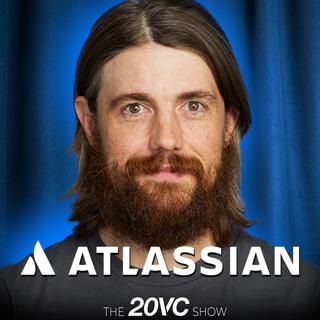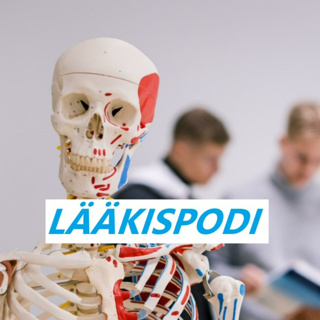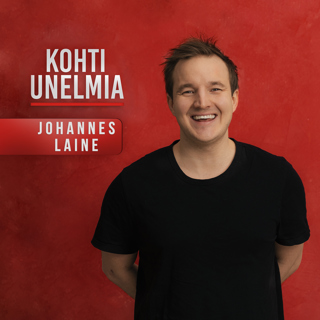
20VC: Tinder Founder Sean Rad on Lessons Scaling Tinder to the Fastest Growing Consumer Social App in History | Leadership Lessons Scaling Tinder | The Future of Love, Dating and Social Media | The Secret to Your Relationship with Money and Marriage
Sean Rad is the Founder and former CEO of Tinder. Sean has made more romantic connections between humans than anyone in history with Tinder having matched 50BN different people. Sean is also the Founder of Rad Fund which has made over 100 investments in companies and funds. In Today's Episode with Sean Rad We Discuss: 1. Lessons Scaling Tinder to the Fastest Consumer Social App: Starting: How did the idea for Tinder come to Sean in a restaurant in LA? Scaling: What are Sean's biggest lessons for consumer apps scaling to their first 10,000 users? User Acquisition: How did a party change the entire user acquisition strategy for dinner? What did Tinder not do that Sean wishes they had done? What did Tinder do that with the benefit of hindsight, they should not have done? 2. Leadership Lessons from Tinder CEOship: Annual Product Redesign: Why does Sean believe that every consumer company should have a complete redesign of the app every year? What are the benefits? Detachment: How does Sean advise founders when it comes to detaching their happiness from the performance of the company? What works? What does not work? Common Mistakes: What are the most common mistakes that Sean sees early-stage founders make when it comes to leadership? 3. Money, Wealth and Creating a Family Office: How does Sean analyse his own relationship to money? How has it changed over time? At what stage of wealth does Sean believe you have true financial freedom? What is the single best investment Sean has made? What did he learn? What is the worst investment he has made? What did he learn? What have been the single hardest and most surprising elements of creating a family office? 4. Love, Death, Marriage: In what ways does Sean think love has changed with time? How do we deal with the loneliness pandemic? What does Sean believe are the most non-obvious but important secrets to a happy marriage? How does Sean approach and think about his own spirituality today? Why does he not fear death?
9 Syys 20241h 4min

20VC: Why VC is a Ponzi Scheme Today | Why Most VCs are Bankers | Why Big VCs Ruin Startups | Why Incentives in VC are Broken | Why American Dynamism is a Tool for VCs to Raise Money with Nick Chirls, Asylum Ventures
Nick Chirls is the Founder of Asylum Ventures, a new venture firm dedicated to the creative act of building companies; treating founders like artists, not assets. Asylum raised $55 million to invest $1-2 million in early-stage founders practising the art of making startups. Prior to Asylum, Nick co-founded Notation Capital, one of NYC's most successful pre-seed firms. In Today's Episode with Nick Chirls We Discuss: 1. Why Venture Capital is Broken Today: Why is VC a ponzi scheme today? Why are most VCs sheep and have lost all creativity? Why are most investors today incentivised to get dollars out of the door and not to make great investments? Why are services functions within VC firms total BS? Why do no VCs provide significant enough value to a company that it is needle-moving? 2. How to Make Money in VC in 2024: What are the two ways to make money at seed in 2024? Why do founders in unloved markets care more than those in hot markets? Why will large institutions lose a ton of money investing in the large firms of today? Why does Nick believe VCs should always sell when their founders sell shares? 3. Lessons from 3xing a Fund on One Check: Why does Nick think about not purchasing preferred shares and only buying common shares? Why does Nick believe that investing in competitive markets is stupid? What does Nick believe are the conditions you must accept if you are doing a $5M on $25M seed?
6 Syys 20241h

20VC: OpenAI's Newest Board Member, Zico Colter on The Biggest Bottlenecks to the Performance of Foundation Models | The Biggest Questions and Concerns in AI Safety | How to Regulate an AI-Centric World
Zico Colter is a Professor and the Director of the Machine Learning Department at Carnegie Mellon University. His research spans several topics in AI and machine learning, including work in AI safety and robustness, LLM security, the impact of data on models, implicit models, and more. He also serves on the Board of OpenAI, as a Chief Expert for Bosch, and as Chief Technical Advisor to Gray Swan, a startup in the AI safety space. In Today's Episode with Zico Colter We Discuss: 1. Model Performance: What are the Bottlenecks: Data: To what extent have we leveraged all available data? How can we get more value from the data that we have to improve model performance? Compute: Have we reached a stage of diminishing returns where more data does not lead to an increased level of performance? Algorithms: What are the biggest problems with current algorithms? How will they change in the next 12 months to improve model performance? 2. Sam Altman, Sequoia and Frontier Models on Data Centres: Sam Altman: Does Zico agree with Sam Altman's statement that "compute will be the currency of the future?" Where is he right? Where is he wrong? David Cahn @ Sequoia: Does Zico agree with David's statement; "we will never train a frontier model on the same data centre twice?" 3. AI Safety: What People Think They Know But Do Not: What are people not concerned about today which is a massive concern with AI? What are people concerned about which is not a true concern for the future? Does Zico share Arvind Narayanan's concern, "the biggest danger is not that people will believe what they see, it is that they will not believe what they see"? Why does Zico believe the analogy of AI to nuclear weapons is wrong and inaccurate?
4 Syys 20241h

20Growth: Uber's Expansion Playbook for Scaling from 10 Cities to $10BN in Revenue | How Uber Acquired 1M Drivers | How Uber Solved the Chicken and The Egg Problem in New Markets and What Uber Would Be Like with Travis Still There with Scott Gorlick
Scott Gorlick was employee #99 at Uber. Over 6 years, Scott built Uber in Atlanta and helped the company scale from 10 cities to $10B in revenue. Scott is also a prolific angel investor having written early checks into Lime and Standard Cognition to name a few. In Today's Episode with Scott Gorlick We Discuss: 1. The Driver Acquisition Playbook: Scaling to 1M Drivers How did Uber acquire 1M drivers? What was the playbook? What worked? What did not work? How much of a role did driver-to-driver referral payments have in driver acquisition? What did Lyft do on the driver acquisition side that Uber should have done? What did the retention look like for drivers on a 30, 60 and 90 day period? 2. The City Expansion Playbook: What was the expansion playbook that Uber used for new cities? What worked in ramping demand in a new city? What did not work? How much of a role did promotions and discounting play? Lessons from them? Why did Uber often let Lyft launch in a new market first? What was the benefit of this? How did Scott see the maturation rate change with new markets opening? How fast did each subsequent market reach profitability? 3. Travis Kalanick and What Uber Could Have Been: How would Uber be different today if Travis was still in charge? What are the biggest mistakes that Dara has made with their M&A strategy? What are some of Scott's biggest leadership lessons from working with Travis? How did Travis create such strong followership and cult around him? What were the single biggest management mistakes made by Travis?
30 Elo 202441min

20VC: AI Scaling Myths: More Compute is not the Answer | The Core Bottlenecks in AI Today: Data, Algorithms and Compute | The Future of Models: Open vs Closed, Small vs Large with Arvind Narayanan, Professor of Computer Science @ Princeton
Arvind Narayanan is a professor of Computer Science at Princeton and the director of the Center for Information Technology Policy. He is a co-author of the book AI Snake Oil and a big proponent of the AI scaling myths around the importance of just adding more compute. He is also the lead author of a textbook on the computer science of cryptocurrencies which has been used in over 150 courses around the world, and an accompanying Coursera course that has had over 700,000 learners. In Today's Episode with Arvind Narayanan We Discuss: 1. Compute, Data, Algorithms: What is the Bottleneck: Why does Arvind disagree with the commonly held notion that more compute will result in an equal and continuous level of model performance improvement? Will we continue to see players move into the compute layer in the need to internalise the margin? What does that mean for Nvidia? Why does Arvind not believe that data is the bottleneck? How does Arvind analyse the future of synthetic data? Where is it useful? Where is it not? 2. The Future of Models: Does Arvind agree that this is the fastest commoditization of a technology he has seen? How does Arvind analyse the future of the model landscape? Will we see a world of few very large models or a world of many unbundled and verticalised models? Where does Arvind believe the most value will accrue in the model layer? Is it possible for smaller companies or university research institutions to even play in the model space given the intense cash needed to fund model development? 3. Education, Healthcare and Misinformation: When AI Goes Wrong: What are the single biggest dangers that AI poses to society today? To what extent does Arvind believe misinformation through generative AI is going to be a massive problem in democracies and misinformation? How does Arvind analyse AI impacting the future of education? What does he believe everyone gets wrong about AI and education? Does Arvind agree that AI will be able to put a doctor in everyone's pocket? Where does he believe this theory is weak and falls down?
28 Elo 202451min

20VC: Why the IPO Market is not Closed | Why Revenue Multiples are BS and Founders Need to Change | Advice From Jack Ma, Jamie Dimon and Evan Spiegel | Lessons from Taking Snap & Alibaba Public with Imran Khan
Imran Khan is the OG of IPOs having taken some of the biggest companies public including Alibaba, Snap, Box, Weibo and more. Today, Imran is the founder and Chief Investment Officer of Proem Asset Management. Prior to co-founding Proem, Imran served as Snap Inc.'s Chief Strategy Officer. Under his leadership, Snap's annual revenue run rate increased to $1.6 billion from zero in less than four years. Previously, Imran was a Managing Director and Head of Global Internet Investment Banking at Credit Suisse where he advised on more than $45 billion-worth of Internet M&A and financing transactions. In Today's Episode with Imran Khan We Discuss: 1. The IPO Market: When Does it Open: How does Imran assess the state of the IPO market today? Can companies really go out with $100-$200M in revenue? Will we see revenue multiples reflate? Can venture continue as an asset class if they do not? When does Imran expect the IPO market to really open? 2. Is M&A F******: How does Imran assess the state of the M&A market today? How do founders need to change how they think about M&A? Why are they to blame for the lack of M&A activity we have today? To what extent can we blame Lina Khan for the lack of M&A? Why would a company go do an M&A process today when it is unlikely to be approved by the SEC? Why does Imran believe in the case of Wiz, it was a mistake for the company not to do the M&A? 3. AI's $600BN Question: Capex Spend: How does Imran analyse the insane capex spend we are seeing from Meta, Google and Amazon? How does Zuck not having his cash cow as the cloud business change how he can act? How does this compare to Google's capex spend 20 years ago? What can we learn from that? 4. Going Public: The Process, The Players and Jack Ma & Jamie Dimon: What is the literal process to take a company public? Who sets the price? What do large institutions want in companies going public? What are some of Imran's biggest lessons from taking Snap and Alibaba public? What are some of Imran's biggest lessons from Jack Ma, Jamie Dimon and Evan Spiegel?
26 Elo 20241h 4min

20Sales: How Snowflake Built a Sales Machine | Why You Have to Hire a CRO Pre-Product | Why Most Sales Reps Do Not Perform | Why Hiring Panels are BS in Interviews | Why Remote Sales Reps Do Not Care About Their Development with Chad Peets
Chad Peets is one of the greatest sales leaders and recruiters of the last 25 years. From 2018 to 2023, Chad was a Managing Director at Sutter Hill Ventures. Chad has worked with the world's best CEOs and CROs to build world-class go-to-market organizations. Chad is currently a member of the Board of Directors for Lacework and Luminary Cloud and on the boards of Clumio and Sigma Computing. He previously served as a board member for Astronomer, Transposit, and others. He was an early-stage investor at Snowflake, Sigma, Observe, Lacework, and Clumio. In Today's Discussion with Chad Peet's We Discuss: 1. You Need a CRO Pre-Product: Why does Chad believe that SaaS companies need a CRO pre-product? Should the founder not be the right person to create the sales playbook? What should the founder look for in their first CRO hire? Does any great CRO really want to go back to an early startup and do it again? 2. What Everyone Gets Wrong in Building Sales Teams: Why are most sales reps not performing? How long does it take for sales teams to ramp? How does this change with PLG and enterprise? What are the benchmarks of good vs great for average sales reps? How do founders and VCs most often hurt their sales teams and performance? 3. How to Build a Hiring Machine: What are the single biggest mistakes people make when hiring sales reps and teams? Are sales people money motivated? How to create comp plans that incentivise and align? Why does Chad believe that any sales rep that does not want to be in the office, is not putting their career and development first? Why is it harder than ever to recruit great sales leaders today? 4. Lessons from Scaling Sales at Snowflake: What are the single biggest lessons of what worked from scaling Snowflake's sales team? What did not work? What would he do differently with the team again? What did Snowflake teach Chad about success and culture and how they interplay together?
23 Elo 20241h 3min

20VC: Five Lessons Scaling Toast to $14BN Market Cap | The Biggest Mistakes Founders Make in Fundraising, Hiring and Selling with Aman Narang, CEO @ Toast
Aman Narang is the Co-Founder and CEO of Toast, one of the best-in-class vertical SaaS companies of our time with a market cap today of $13.5BN. Five astonishing stats that show the quality of the Toast business today: $1.2bn in ARR with 48.4% from payments. Toast Capital has reached $1bn in annualised loans originated. 875k restaurants in the US (Toast has 112k: 13% market share) 75% of locations are coming from inbound channels The first investor in the company invested $500K at a $3M price In Today's Episode with Aman Narang We Discuss: 1. The Biggest Mistakes Founders Make: Why does Aman believe that founders should spend more time fundraising and with investors early? Why does Aman believe founders should hire managers before they think they need them? Why does Aman believe that founders do not give up control early enough? 2. Lessons Scaling to a $14BN Market Cap: What did Aman and Toast do so successfully that allowed them to scale to $14BN market cap in 12 years? What worked? What are the single biggest mistakes Toast made that hindered their growth most? What are the first things to break in hyperscaling companies? What opportunity did Aman and Toast not take that with the benefit of hindsight, he wishes they had taken? 3. Crucible Moment Decisions: Expansion: How did Aman and Toast know when was the right time to release a second product? What has enabled Toast Capital to scale to $1BN in loans so efficiently? How did Aman and Toast scale so successfully into both enterprise and SMB? What are the biggest lessons from doing so? What did not work? How do Aman and Toast approach geographic expansion? How do they choose which countries to expand into?
21 Elo 20241h 3min






















